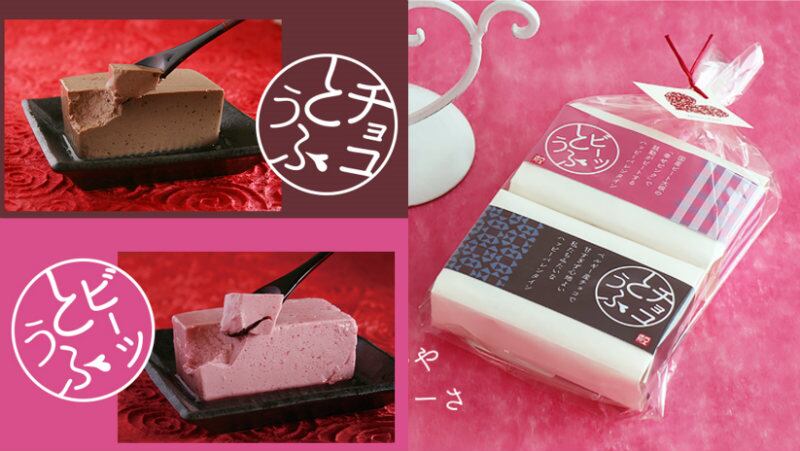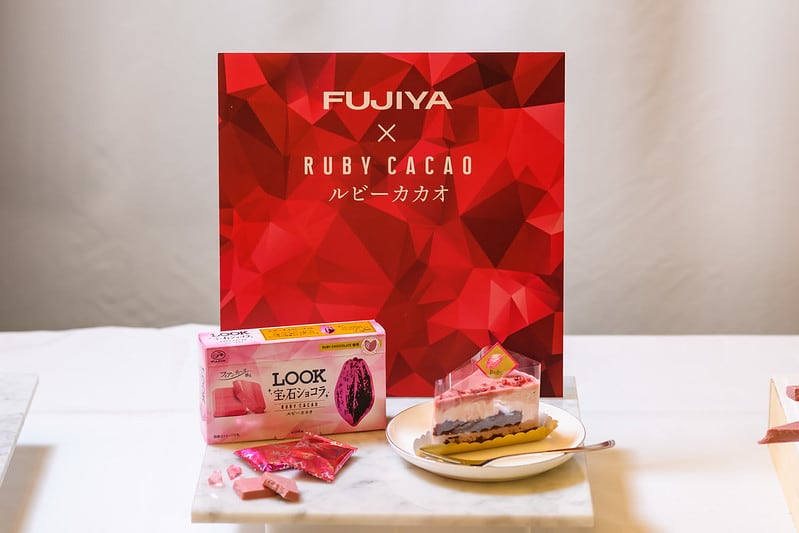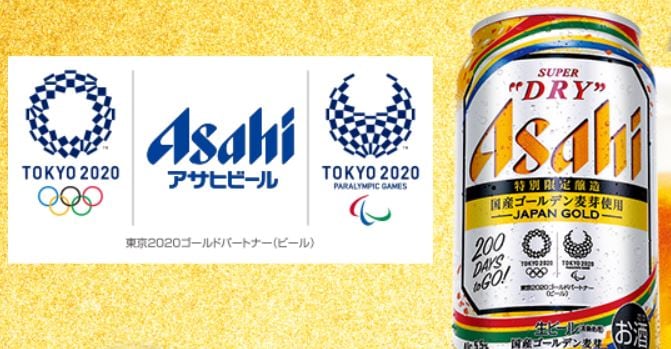Chocolates are a traditional Valentine’s Day all-time favourite both in Japan and around the world, but this year Yamaki Jozo aims to disrupt that concept and replace this with relatively healthier tofu alternatives.
“[We see] Valentine’s tofu as a unique proposal for our customers, [especially those over 50 years of age] or concerned about their health to join in and enjoy Valentine’s Day,” Yamaki Jozo President Mami Kitani told FoodNavigator-Asia.
“[Those who care] about health tend to be concerned about the calories and sugar in chocolate, so our Valentine’s tofu could be an enjoyable, healthy and tasty replacement.
“We also want to propose Valentine’s tofu as an option for younger consumers, who do not often eat Japanese tofu, by making our products [colourful, interesting and] Instagrammable.”
The firm is offering two types of Valentine’s tofu: Chocolate and Beet. According to Kitani, both of these can be eaten as either a sweet or savoury food and carries a smooth texture similar to that of silken (KINU) tofu.
“Chocolate tofu is popular with the ladies in their thirties because chocolates are generally very popular amongst this age group,” she added.
“Beet tofu is popular amongst those who are health conscious (they tend to try this in beet smoothies, etc.). [This tofu is also pink in colour due to the nature of the beetroot], making it a very eye-catching product.”
Both the chocolate and beet options are made via ‘traditional methods’, using locally-grown soybeans and nigari (natural bittern from local sea salt).
“Our tofu does not contain any chemical and artificial materials, and are non-GMO” Kitani added.
The Valentine’s tofu is being sold as a set of two (one chocolate, one beet) for JPY640 (US$5.82), available on the firm’s online or physical store.
Soy in Japan
Soy products are more or less a staple food item in Japanese cuisine, a tradition which Yamaki Jozo, established in 1902 and now 118-years-old, very much caters to.
“Soy products are essential in Japanese cuisine, but most of the raw ingredients used to make these are imported now because they are cheaper,” Kitani told us.
“This has resulted in many local farmers stopping production, but we believe that there is great value in producing natural food using local ingredients.”
Apart from tofu, the firm also manufactures shoyu (soy sauce), miso, pickles and other products using organic and/or sustainable local ingredients and mountain spring water.
“Although soy products are considered to be healthy, the consumption of simple tofu is declining in Japan, but soy milk or natto (fermented soybeans) consumption is growing,” she added.
“We also see that organic demands in the country are slowly but certainly growing – perhaps because of the upcoming Olympics. Almost half of our production is local organic, and other part is still in natural food.”
Japan-focused only
Yamaki Jozo is a family-run business based out of a Saitama mountain town, and its focus is centrally concentrated only in Japan.
“We do not have plans to expand our production sites, as we really want to make sure what we are producing on site,” said Kitani.
“[That said], we are challenging ourselves to produce more unique soy products that are appealing to customers.”





